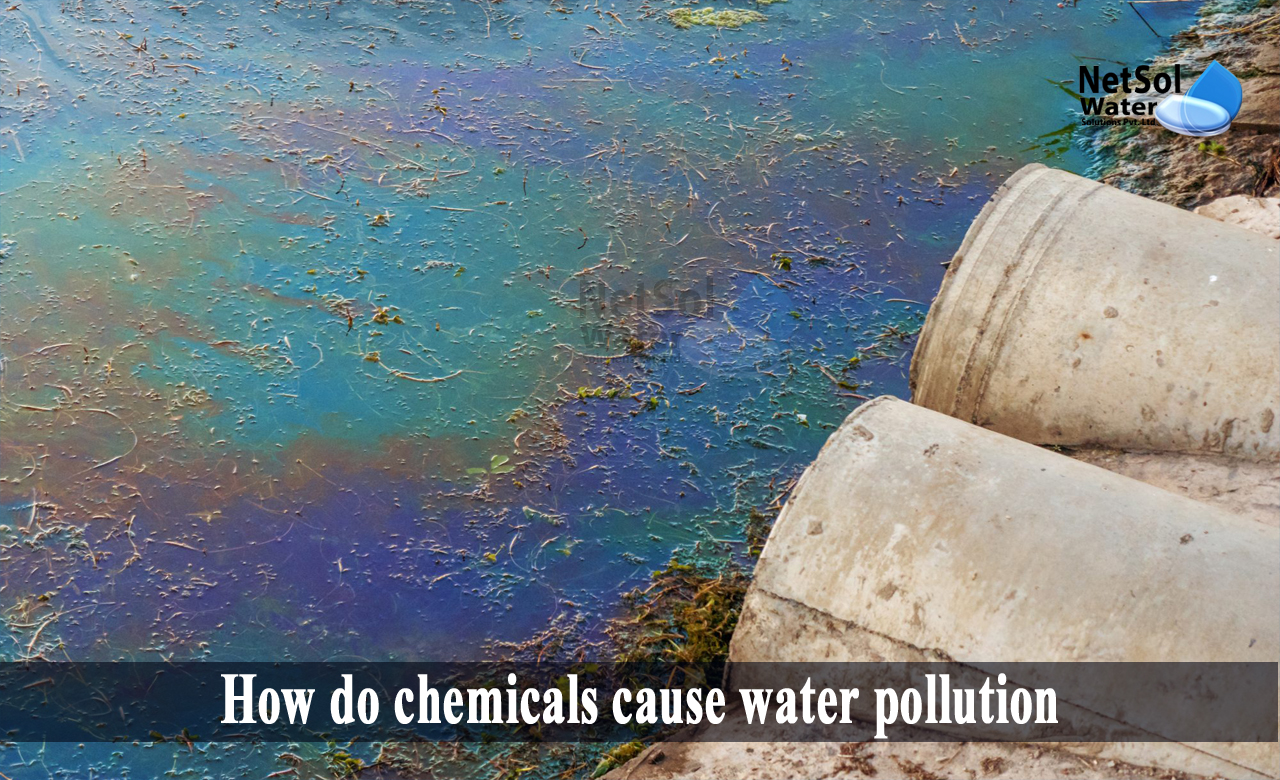When dangerous substances often chemicals or microorganisms, contaminate a stream, river, lake, ocean, aquifer, or other body of water, their quality deteriorates and they become toxic for both humans and the environment. This is known as water pollution.
Let's examine the role that chemicals play in water pollution.
What leads to the pollution of water?
Water is particularly susceptible to pollution. More substances can be dissolved by water than by any other liquid on earth. It's also the reason water is so easily contaminated. It is easily dissolved and mixed with toxic compounds from industries, municipalities, and farms, which results in water pollution.
Pollution has a significant impact on water quality.
When chemicals or other things enter the aquatic ecosystem or when natural chemicals accumulate in excess, water pollution results.
Sources of water pollution
Water poll?ution occurs because of two sources:
Point Source: When contaminants reach a body of water at a single location, such as a discharge pipe.
Diffuse pollution: It happens over a large area when there isn't a clear source of it. Examples include runoff from urban areas and rural land. It might be challenging to recognize and eliminate this kind of contamination.
How do chemicals cause water pollution?
Numerous chemicals are used in industrial and agricultural processes, and these compounds have the potential to harm water bodies, when they flow off.
1: Rivers and lakes can become contaminated by metals and chemicals from industrial operations. Many aquatic life forms are poisoned by these, which can impair development, render them sterile, or even cause them to perish.
2: In agriculture, pesticides are used to control weeds, insects, and fungi. These insecticides' runoffs have the potential to pollute the water and harm aquatic life. Birds, people, and other animals could subsequently become ill from eating sick fish.
3: Another type of chemical pollution is petroleum, which typically contaminates water when a ship ruptures through oil spills. Animals are typically only affected locally by oil spills, but they can travel great distances. Numerous fish may perish as a result of the oil, and seabirds may lose their ability to fly, as a result of the oil adhering to their feathers.
Effects of chemicals in water
The process, through which a body of water gets loaded with compounds like nitrates and phosphates, is known as eutrophication. These nutrients are subsequently consumed by algae and other aquatic plants, which promotes excessive development.
As a result of algal blooms on the water's surface, reducing sunlight penetration and preventing photosynthesis, which kills and decomposes aquatic plant life, there is a decrease in the amount of dissolved oxygen that is accessible. All animal life in the water body is also killed by the absence of dissolved oxygen.
Chemicals called endocrine disrupting compounds (EDCs) have the potential to prevent aquatic animals' hormones, from functioning normally. They can get into waterways by sewage and industrial waste discharges, as well as through agricultural runoff.
Polycyclic aromatic hydrocarbons, which are present in oil, have been demonstrated to have the ability to give fish heart attacks and, in lower quantities, to obstruct fish larval development.
Conclusion
Water is a special substance because it has the ability to replenish and clean itself naturally, by allowing contaminants to break down or settle out (via the process of sedimentation), or by dilution to a level where they are not in dangerous quantities.
However, this natural process takes time, and it becomes challenging when the water is contaminated with too many dangerous chemicals. Additionally, humans are utilizing an increasing amount of substances that contaminate the water sources, we use to drink.
We are dumping pollutants into the meager amount of water on the earth, which is fit for drinking. The list of pollutants is extensive, and there are many symptoms of water pollution all around us.
Choosing the best manufacturers of water treatment plants in India
Netsol Water has aided in the resolution of hundreds of water-related problems, by utilizing a wide range of specialized water treatment and water recycling treatment technologies, in India. We are educating today's and tomorrow's leaders about drinking water quality issues, in order to achieve our goal of providing safe drinking water to every Indian.
Netsol Water is Greater Noida-based leading water & wastewater treatment plant manufacturer. We are industry's most demanding company based on client review and work quality. We are known as best commercial RO plant manufacturers, industrial RO plant manufacturer, sewage treatment plant manufacturer, Water Softener Plant Manufacturers and effluent treatment plant manufacturers. Apart from this 24x7 customer support is our USP. Call on +91-9650608473, or write us at enquiry@netsolwater.com for any support, inquiry or product-purchase related query.



